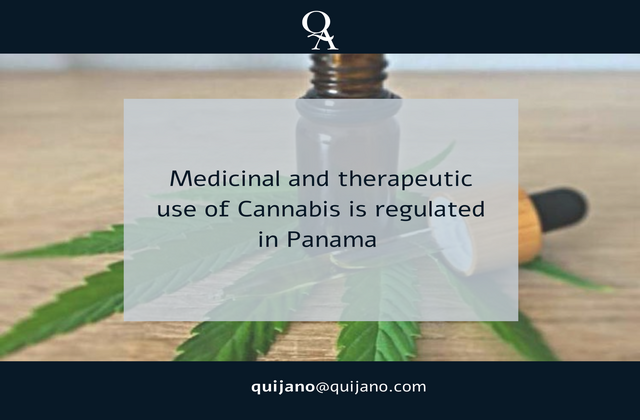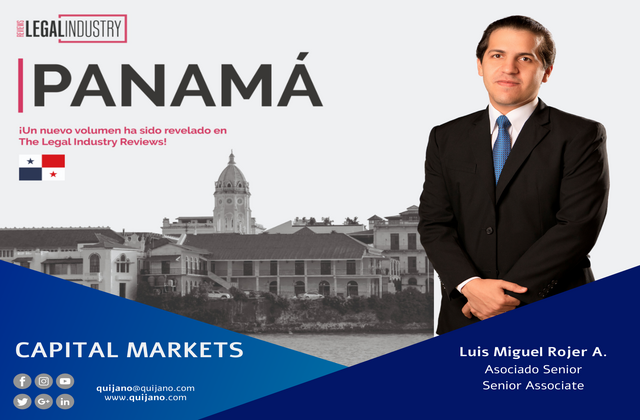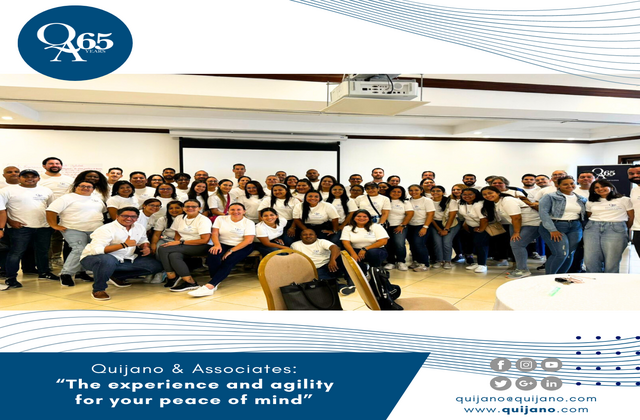Medicinal and therapeutic use of Cannabis is regulated in Panama

Law 242 of October 13th, 2021 regulates the evaluation, monitoring and control of the activities of import, export, cultivation, production, manufacture, laboratory analysis, acquisition under any title, storage, transportation, marketing, distribution, final disposal, use of duly authorized seeds for planting the cannabis plant, as well as medical cannabis derivatives, for medical, veterinary, therapeutic, scientific and research purposes; with the aim of creating the regulatory framework that allows the use and the controlled and monitored access to medical cannabis and its derivatives in Panamanian territory; and seeks to:
- Regulate the right of all patients to have access to medical cannabis treatment, under strict safety, control, quality, surveillance and proper care by qualified medical personnel.
- Establish control mechanisms for all activities regulated by the Law, related to medical cannabis for medical, veterinary, therapeutic, scientific and research purposes.
- Establish the safety, control, quality and surveillance standards for products that are imported, exported, manufactured, transported, stored and marketed, from its cultivation, production to the final disposal of medical cannabis derivatives, provided that it is for medical, veterinary, therapeutic, scientific and research purposes.
- Promote the study and research that allows increasing the scientific knowledge about medical cannabis, thus allowing the development of laboratories and research centers, following the highest quality standards and the best practices in the field of science.
COMPETENT AUTHORITIES
Any product derived from cannabis for the aforementioned purposes shall be subject to a system of surveillance, supervision and administrative, operational and security control; executed by these authorities:
1. The Ministry of Health: competent authority to establish the requirements, receive license applications, analyze and issue (as well as cancel) the licenses to acquire, store, transport, dispense and/or commercialize, consume and export cannabis and its derivatives for medicinal purposes in humans; namely:
a. Manufacturing License of Medicinal Cannabis derivatives – which allows the import, export, commercialization, manufacture and sanitary registration.
- It is granted for a period of 10 years from its issuance.
- Renewable for the same period.
- Renewal must be requested six months before its expiration date.
- Up to five years after the enactment of the Law, the Ministry of Health may only authorize up to seven manufacturing licenses, as a preventive measure to monitor the development of the domestic market.
- After this period, the Ministry will not be able to reduce the number of previously approved licenses.
- Authorized licensees may only source from duly certified laboratories that are licensed or authorized to manufacture medical cannabis derivatives in the country of origin from which they are imported and that may be exported to Panama.
- Those who in turn commercialize through their own establishments or third parties must comply with pharmacovigilance provisions through a strict follow-up and control of inventory received and distributed, including price list, identification of lots, volumes and prescriptions.
- The commercialization of medical cannabis through delivery or online is prohibited.
- These licenses must be requested through a lawyer, and may only be granted to legal entities constituted as licensees to provide therapeutic health services or conduct research, which comply with the requirements set forth in Articles 15, 22 and 25 of the Law.
b. License for Scientific Research on Medicinal Cannabis.
- It will be granted to universities duly recognized by the Panamanian government and to scientific research centers.
- All information used for established medical practice to generate new knowledge considered “research for health”
- It will only be granted if the research product corresponds to cannabis for medicinal, veterinary or therapeutic use; and the documentation that accredits the research project must be presented.
c. Other obligations of the Ministry of Health:
- To establish a Registry of Patients Users of Cannabis and its derivatives for medicinal and therapeutic use; and in coordination with the Governmental Innovation Authority (AIG), to guarantee the reliability of the tool that will support this registry, protecting the identity and privacy of the patients and their medical condition.
- To create the National Program for the study and medicinal use of Cannabis and its derivatives, which will have among its main objectives to promote access to cannabis products to any person who joins the program, to establish guidelines and adequate assistance, treatment and accessibility guidelines and to promote awareness measures aimed at the general population. And within its main obligations the program will quantify the legitimate needs of the country and set the total amounts required as an annual forecast and supplementary forecasts.
2. The Ministry of Agricultural Development will be the competent authority to:
a. Authorize the use of seeds for sowing and cultivation of cannabis plants for medicinal use; issued only to licensees holding a License for the Manufacture of medicinal cannabis derivatives and includes the following activities:
- Importation, acquisition of seeds, cannabis seedlings and/or plant tissues of the cannabis plant, sowing, propagation, cultivation, harvesting, post-harvesting, as well as storage, transportation, laboratory analysis, export and final disposal of seeds, seedlings, plant tissues, cannabis plants and flowers and the final agronomic product of cannabis for medicinal use.
- All phases of cultivation will be carried out in designated areas with limited access, monitored by surveillance cameras.
- The cultivation process may only be conducted in a controlled environment and must use best practices to limit contamination.
- All seed and crop testing must be performed by an independent laboratory (accredited by the International Organization for Standardization (ISO) to ISO/IEC 17025) contracted by the licensee, who may not have any financial or other interest in the laboratory providing the testing service.
- Legal entities that intend to carry out these activities on land located in protected areas cannot be authorized.
- These activities cannot be carried out on pre-existing illicit crops.
- Authorized legal entities must keep records of all their operations and report them to the Ministry of Public Security.
- This authorization must be requested through a lawyer, and can only be granted to licensees that hold a Medicinal Cannabis Derivatives Manufacturing License, and comply with the requirements set forth in Article 37 of the Law.
b. Establish the requirements, receive applications and issue licenses to dispense, store, transport and commercialize cannabis or its derivatives for use in animals.
GENERAL CONTROL REQUIREMENTS
Storage and Transportation
- Medical cannabis and finished products must be protected from physical, chemical and microbial contamination and deterioration of these and their containers.
- The regulation will develop proper procedures and regulations among producers, testing laboratories and marketers to ensure adequate security to avoid losses during transit.
Establishment
- Requirements relating to containers, labeling and packaging for safe shipment.
- Security of means of transport.
- Security system with numbered transport seal.
- Authenticated copies of drivers’ licenses and records.
- Use of global positioning system (GPS) for transport vehicles.
- Number of drivers.
- Maintain records of delivery and receipt of goods.
Licensee:
- Implement electronic tracking system accessible to the competent authority, which must include traceability of seeds and usable plants at any stage of development, and monitoring of derivatives from their import and harvest stage to processing and manufacturing, storage, transportation, export and marketing.
- Submit quarterly inventory records that include the following:
- Total quantity of grown, harvested, extracted, processed and/or manufactured cannabis seeds, plants and / or derivatives.
- Total quantity of cannabis purchased by each licensee’s establishment.
- Total quantity and dollar value of cannabis sold to each pharmaceutical establishment in that period.
- Total quantity and dollar value of cannabis and cannabis derivatives exported.
- Maintain the license in a conspicuous place on the premises.
- Inform the control authority of any change in the information reflected in the license.
- Report to the National Police, within 24 hours, any loss or theft of seeds, plants or medical cannabis derivatives.
- From the issuance of the license, the licensee is obliged to be submitted to inspections, without prior notice.
FOREIGN TRADE
Importat
- The importation of seeds for sowing, medical cannabis plants, medical cannabis, its derivatives and products containing it will be subject to the prior license importation regime; and the products that do not comply with the requirements of the competent authorities will be subject to the process of confiscation and destruction.
- Derivatives and manufacture of derivatives must be processed through the Foreign Trade Single Window, with prior approval of the Ministry of Health.
- Seeds for sowing and cultivation plants will require the approval of the Ministry of Public Security, prior approval of the Ministry of Agricultural Development.
Export
- To export medical cannabis derivatives and products containing medical cannabis, the application must be submitted to the Ministry of Health and the authorization will consist of an export certificate that the holder of the manufacturing license must obtain for each shipment.
- The export of seeds for sowing, cannabis plants, cannabis, cannabis, cannabis derivatives and products obtained from cannabis derivatives is allowed from the national territory to the rest of the world.
- Only the licensee established in free or special zones may re-export.
COST OF LICENSES
One-time payment to the competent authority of US $ 150,000 which is non-refundable, and distributed at the rate of:
- 40% to the Mental Health Institute of Panama
- 40% to the National Directorate of Pharmacy and Drugs
- 10% to the National Oncology Institute
- 10% to the National Program for the Study and Medicinal Use of Cannabis and its derivatives.
OTHER IMPORTANT POINTS
The law also provides both prohibitions and grounds for the definitive cancellation of licenses; and the creation of the following Councils, how they are formed and their functions:
- Technical Council of Medicinal Cannabis
- Agronomic Advisory Council
Finally, the Law specifies the provisions that have been amended in different codes and laws as a result of its enactment:
- Penal Code – Article 314
- Sanitary Code – Article 194
- Law 14 of May 19, 2016 – Article 7




